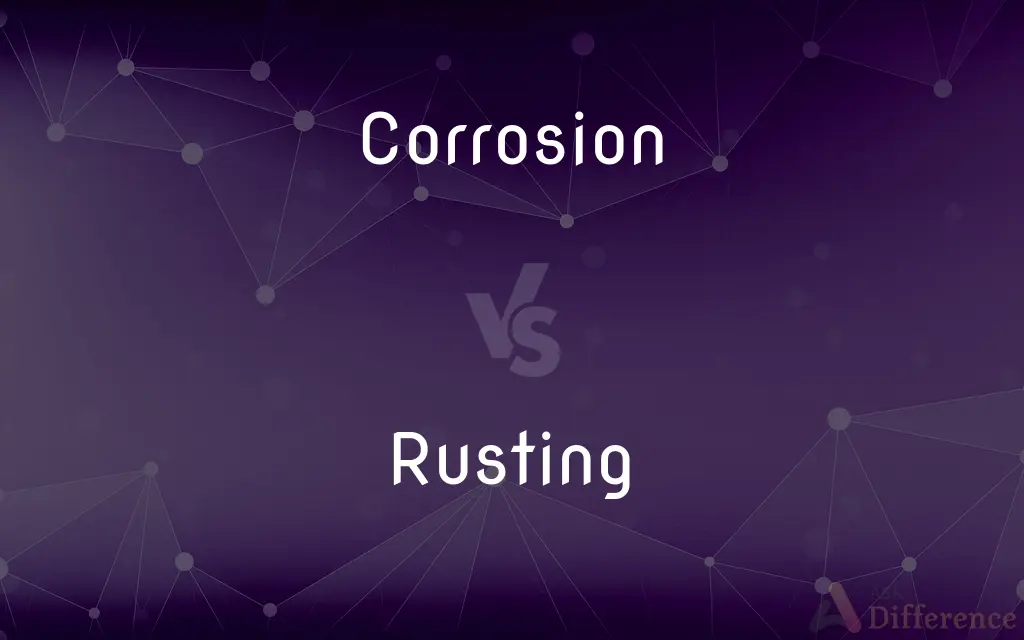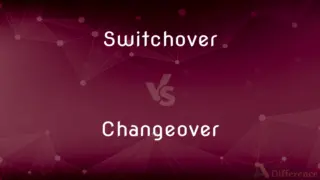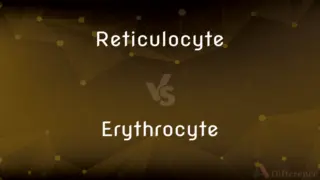Corrosion vs. Rusting — What's the Difference?
By Fiza Rafique & Urooj Arif — Updated on May 15, 2024
Corrosion involves the deterioration of materials due to chemical reactions, affecting various metals; rusting is a specific type of corrosion limited to iron and its alloys.

Difference Between Corrosion and Rusting
Table of Contents
ADVERTISEMENT
Key Differences
Corrosion is a broad term describing the degradation of any material because of chemical reactions with the environment, whereas rusting specifically refers to the corrosion of iron and steel when exposed to oxygen and moisture.
Corrosion can occur on metals like aluminum, copper, and stainless steel, leading to various forms of deterioration such as pitting or galvanic corrosion, while rusting results in the formation of iron oxide, typically seen as red or orange flaking on iron surfaces.
Environmental factors such as humidity, temperature, and the presence of salts can accelerate corrosion in many metals, whereas rusting primarily depends on the presence of water and oxygen to initiate the reaction.
Corrosion can be controlled using different methods based on the material and the exposure conditions, such as coatings, cathodic protection, or material selection; rust prevention focuses on barrier coatings, like paints and galvanizing.
The economic impacts of corrosion are significant across various industries, necessitating comprehensive prevention strategies, while rusting, although a common issue, typically affects structures and items made of iron and steel.
ADVERTISEMENT
Compare with Definitions
Corrosion
Chemical erosion that typically involves reduction-oxidation reactions.
Corrosion of metal fasteners in the marine environment was accelerated by saltwater.
Rusting
A specific type of corrosion that primarily affects iron and steel.
Rusting of the bridge's supports raised concerns about its structural integrity.
Corrosion
The process by which solid surfaces are converted into a more chemically stable form such as oxide.
Corrosion of aluminum forms a protective oxide layer that prevents further decay.
Rusting
The formation of iron oxides as a result of iron reacting with oxygen in the presence of water.
The gate was covered in rusting, highlighting its long exposure to the elements.
Corrosion
Damage caused by oxidizing agents in the environment to the structure of metallic objects.
Corrosion of the pipeline was evident from the pitting and scaling on its surface.
Rusting
Deterioration that compromises the strength and appearance of iron-based materials.
Rusting had weakened the metal frame, making it fragile.
Corrosion
Gradual destruction of materials by chemical reaction with their environment.
The statue's copper surface showed signs of corrosion, turning a greenish-blue.
Rusting
A preventable corrosion process through protective coatings and moisture control.
Preventing rusting on the vehicle involved regular application of anti-rust sprays.
Corrosion
The deterioration of materials as a result of electrochemical reactions.
Corrosion in the car's battery terminals interrupted the electrical flow.
Rusting
Any of various powdery or scaly reddish-brown or reddish-yellow hydrated ferric oxides and hydroxides formed on iron and iron-containing materials by low-temperature oxidation in the presence of water.
Corrosion
Corrosion is a natural process that converts a refined metal into a more chemically stable form such as oxide, hydroxide, carbonate or sulfide. It is the gradual destruction of materials (usually a metal) by chemical and/or electrochemical reaction with their environment.
Rusting
Any of various metallic coatings, especially oxides, formed by corrosion.
Corrosion
The act or process of corroding.
Rusting
A stain or coating resembling iron rust.
Corrosion
The condition produced by corroding.
Rusting
Deterioration, as of ability, resulting from inactivity or neglect.
Corrosion
A substance, such as rust, formed by corroding.
Rusting
Rust fungus.
Corrosion
The act of corroding or the condition so produced.
Rusting
A plant disease caused by a rust fungus, characterized by reddish or brownish spots on leaves, stems, and other parts.
Corrosion
A substance (such as rust) so formed.
Rusting
A strong brown.
Corrosion
(chemistry) Erosion by chemical action, especially oxidation.
Rusting
To become corroded.
Corrosion
(by extension) The gradual destruction or undermining of something.
Rusting
To deteriorate or degenerate through inactivity or neglect
My golf game has rusted from all those years of not playing.
Corrosion
The action or effect of corrosive agents, or the process of corrosive change; as, the rusting of iron is a variety of corrosion.
Corrosion is a particular species of dissolution of bodies, either by an acid or a saline menstruum.
Rusting
To become the color of rust.
Corrosion
A state of deterioration in metals caused by oxidation or chemical action
Rusting
(Botany) To develop a disease caused by a rust fungus.
Corrosion
Erosion by chemical action
Rusting
To corrode or subject (a metal) to rust formation.
Rusting
To impair or spoil, as by misuse or inactivity.
Rusting
To color (something) a strong brown.
Rusting
Present participle of rust
Rusting
The development of rust on a surface.
Rusting
The formation of reddish-brown ferric oxides on iron by low-temperature oxidation in the presence of water
Rusting
The process resulting in reddish-brown flaky deposits on iron surfaces.
Rusting was visible on the old tools left in the shed.
Common Curiosities
How does corrosion affect different materials?
Corrosion can affect metals like copper, aluminum, and steel, each showing different symptoms like tarnishing, pitting, or galvanic corrosion.
Can corrosion be prevented?
Yes, through methods like protective coatings, use of corrosion-resistant materials, and cathodic protection.
What is rusting?
Rusting is the corrosion of iron or steel, forming iron oxide.
What is galvanic corrosion?
Galvanic corrosion occurs when two dissimilar metals are in electrical contact in a corrosive environment.
Is rusting reversible?
Rusting is generally not reversible; affected parts must be replaced or extensively treated.
What is the most effective rust inhibitor?
Common rust inhibitors include oil-based coatings and specialized paints.
What is corrosion?
Corrosion is the degradation of materials through chemical reactions with their environment.
What environments accelerate rusting?
Rusting accelerates in moist and oxygen-rich environments.
What industries are most affected by rusting?
Industries like automotive, marine, and construction are significantly affected by rusting.
What are the signs of rusting?
Common signs include reddish-brown flaking and staining on iron.
Does painting prevent rusting?
Yes, painting is an effective way to prevent rust by isolating the metal from environmental factors.
Can stainless steel rust?
While highly resistant, stainless steel can rust under certain conditions, such as when exposed to chlorides.
How does temperature affect corrosion?
Higher temperatures can accelerate the chemical reactions causing corrosion.
How is corrosion measured?
Corrosion is often measured by material loss or deterioration over time.
Share Your Discovery

Previous Comparison
Switchover vs. Changeover
Next Comparison
Reticulocyte vs. ErythrocyteAuthor Spotlight
Written by
Fiza RafiqueFiza Rafique is a skilled content writer at AskDifference.com, where she meticulously refines and enhances written pieces. Drawing from her vast editorial expertise, Fiza ensures clarity, accuracy, and precision in every article. Passionate about language, she continually seeks to elevate the quality of content for readers worldwide.
Co-written by
Urooj ArifUrooj is a skilled content writer at Ask Difference, known for her exceptional ability to simplify complex topics into engaging and informative content. With a passion for research and a flair for clear, concise writing, she consistently delivers articles that resonate with our diverse audience.













































